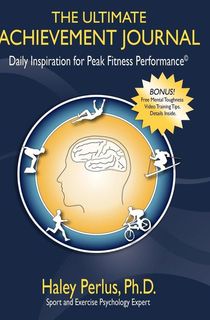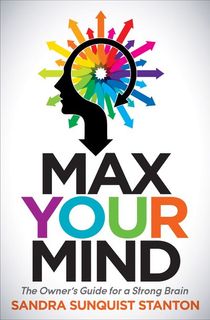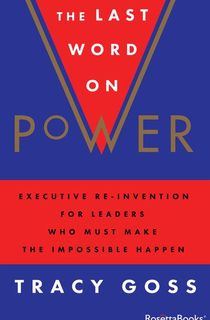What is mental toughness? According to Wikipedia, it’s “a measure of individual resilience and confidence that may predict success in sport, education, and the workplace.” Noted performance psychologist Dr. Jonathan Fader puts it another way, writing that, “The term 'mental toughness' refers to the idea of being able to push past failures by remaining positive and competitive. It also involves training and preparing oneself to be mentally ready for whatever challenge comes our way.”
The concept grew out of the context of sports training, where athletes need to not only condition themselves for the rigors of the game – both on and off the field – but must also be prepared for the long and grueling hours of training itself. Dr. Fader himself achieved fame in part for his work with athletes in both the MLB and NFL, including the New York Giants and the Mets, while Michael Jordan identified mental toughness as “the part that separates the good players from the great players.”
In recent years, coaches, performance psychologists, and others have been expanding the idea of mental toughness from the world of sports training into every other aspect of life – from the boardroom to the daily grind, from child-rearing to relationships, and so much more. The same techniques that athletes use to persevere in the face of difficult training, exhausting games, and very public losses can help all of us to overcome the challenges – and failures – that we face every day.
After all, we all face things that don’t go the way we want them to. Maybe we didn’t get that promotion we were really hoping for at work. Maybe we had a fight with our spouse over something that we know was ultimately our fault. Maybe we raised our voices at our kids when we should have been patient. Maybe we accidentally opened the garage door and let the cat get out. “Staying mentally tough will not only give us the strength we need to deal with our mistakes or sub-par performance,” Dr. Fader writes, “but also provide us with the resilience to keep going despite them.”
Related: The Best Self-Help Books That Will Change Your Life
Ultimately, the best athletes in the world aren’t the ones who never lose, who never fumble the ball, who never trip. They’re the ones who keep going, even when they do lose. The ones who never let a setback destroy their momentum. The ones who know how to turn even the worst pre-season into a great season. And those lessons can be applied to all of us, no matter where we are in our lives, or what we struggle with each and every day.
That’s the idea behind mental toughness, which uses the same kinds of techniques that athletes use to build a reserve of mental strength that will help us persevere through adversity. These techniques include routines, visualization practices, and self-talk, to name just a few. If this all sounds really exciting, you’re ready to dive into the world of mental toughness! The good news is, you don’t need to start with a coach or by becoming a professional athlete. These three books will introduce you to the ideas of mental toughness, and help you to apply the same lessons that athletes use to succeed – and persevere – in your everyday life!

The Ultimate Achievement Journal
What do the majority of individuals who achieve their goals have in common? One thing is that many of them use journals to track their progress. This not only provides accountability, it also gives them a roadmap, running both backward and forward. They can look and see what works and what doesn’t, and they can build on what’s come before to help make the next step of their life even more successful.
Designed with fitness enthusiasts in mind, this success journal from sport and exercise psychology expert Haley Perlus brings the ideas and techniques of mental toughness to the world of fitness journals, helping individuals develop the tools they need to overcome roadblocks and achieve their goals. And while it may be centered on fitness, the techniques employed here can be applied to a wide range of personal goals, with similar results. As Perlus says, the goal is “peak performance in every domain.”

Max Your Mind
In this “owner’s guide for a strong brain,” Sandra Sunquist Stanton tackles a typically serious topic with wit, wisdom, and humor. Some people call it “the Fade,” the decline in mental acuity that many people experience as they get older. In this easy-to-read book, Stanton argues that “the Fade” isn’t how it has to be. In fact, we can enjoy what she calls “the Boost,” instead—an uptick in mental function that comes with maturity.
The question, of course, is how do we get it, and in Max Your Mind, that’s exactly what she sets out to answer, using entertaining and lighthearted anecdotes to illustrate some of the latest research in the field of neuroscience.

The Last Word on Power
What is leadership? Is it merely being in a position of authority, or is it something more? In this one-of-a-kind book, Tracy Goss brings techniques and methodologies that have been proven in the boardroom to the general public for the first time, to show anyone how they can “put at risk the success you’ve become for the power of making the impossible happen.” Just like the athletic field, the office environment can be a highly competitive and chaotic place, filled with unexpected challenges and difficult setbacks.
In this indispensable volume, Goss offers advice on how to go beyond improvement to make lasting, meaningful change in your job and in your life, while also empowering readers to do the work that they really want to be doing; work that is worthy of their time and talents. “Goss offers powerful information, far above the glib self-help mush that already lines the shelves,” Library Journal says, of The Last Word on Power. "She answers the fundamental question of why management fads do not work: the personal work has not yet been done.”
